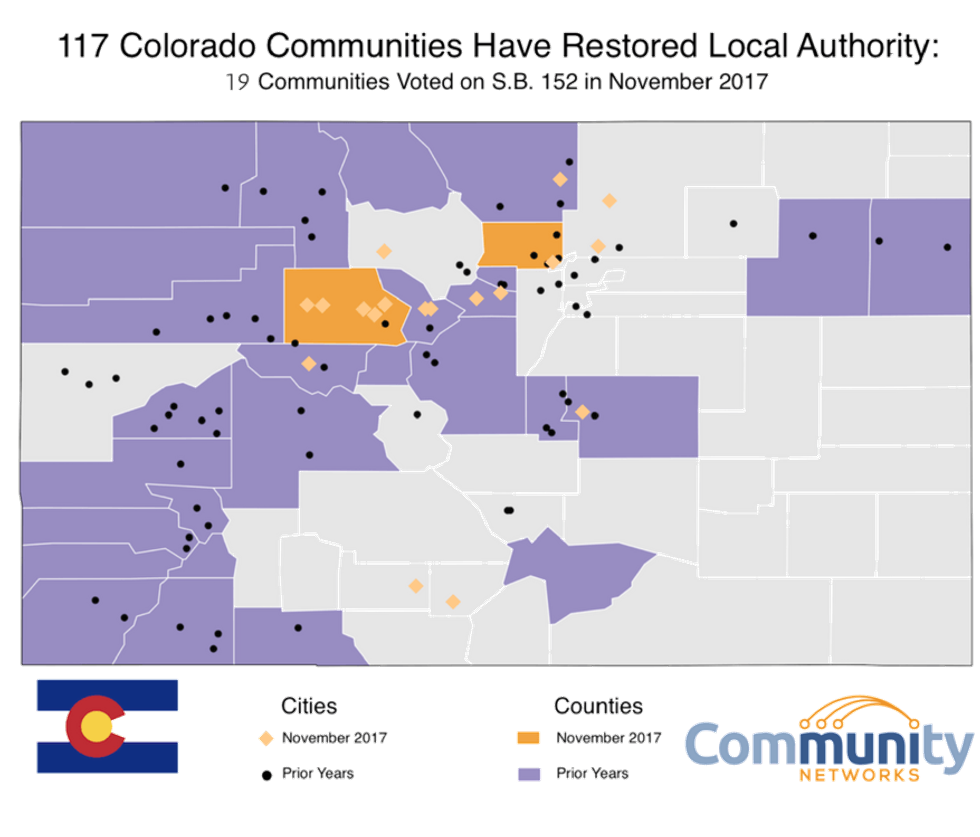Defying a well-financed "misinformation" campaign by major cable and telecom companies to quash competition, the city of Fort Collins, Colorado has approved a ballot measure to invest $150 million in a city-owned broadband utility, while more than a dozen municipalities across the state voted this week in favor of locally-controlled internet.
Although the Fort Collins measure--known as Question 2B before the vote--"does not require the council to create the utility," according to The Coloradoan, it gives the city council "flexibility in setting up a business model for providing high-speed internet, including entering into a partnership with a private company."
City Manager Darin Atteberry told the newspaper that the council will meet later this month to discuss the next steps. Atteberry, along with other local leaders and advocates, celebrated the results, though Mayor Wade Troxell criticized the cable companies' campaign "to misinform the electorate," and said he was disappointed in the Fort Collins Area Chamber of Commerce for "playing an active role in misinformation."
Led by Comcast, "cable providers campaigned heavily against the Fort Collins move," the Denver Post reports, "spending more than $256,000 in television and radio ads." The Institute for Local Self-Reliance (ILSR), however, says that by the time of the election, "that figure had jumped to more than $450,000." In an effort to promote the ballot measure, local residents formed the Fort Collins Citizens Broadband Committee, which raised less than $10,000, but was ultimately victorious.
"This is another David vs. Goliath battle," Glen Akins, who helped lead the committee, told Ars Technica.
"We overcame the opponents' massive, record-setting negative advertising campaign because we had a group of dedicated and passionate volunteers who believed in our cause," Atkins added after the vote. "Our volunteers' passion inspired our community and our community once again affirmed their desire for better broadband and denounced the influence of outsized spending campaigns in our local politics. Big money can buy ad spots and air time but it can't buy votes in Fort Collins."
The city's move toward locally-controlled internet service followed an effort by residents two years ago to opt out of the 2005 state law that prevents municipalities from establishing their own broadband, telecom, or cable utlities. Although the law was passed to appease cable and telecom companies that were lobbying the state, it allows cities and counties to hold referendums to opt out of the restrictions and explore the possibility of offering broadband services.
This week in Colorado, in addition to the Fort Collins financing vote, "19 Colorado communities chose local telecommunications authority with an average rate of 83 percent," joining nearly 100 other state communities that have opted out of the law, according to the ILSR, which tracks local broadband initiatives nationwide.





